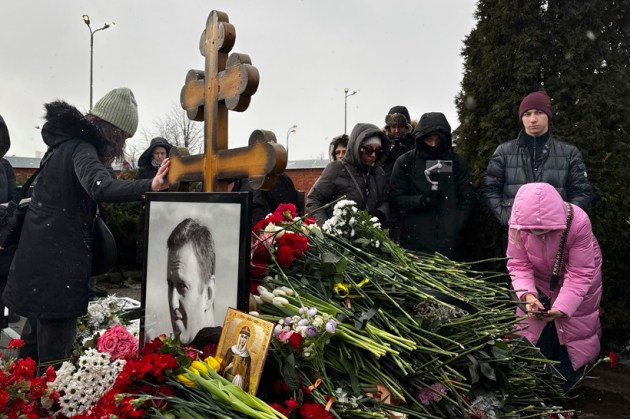In photos: Supporters of Russian opposition leader Navalny gather at grave on first death anniversary
Navalny, a longtime critic of Russian President Vladimir Putin, died on February 16, 2023, in the Polar Wolf penal colony in Kharp, where he was serving a prison sentence.
 1 / 7
1 / 7Supporters of Alexei Navalny, Russia’s most well-known opposition leader, gathered at his grave in Moscow on Sunday to mark the first anniversary of his death, reported The Guardian. (AP photo)
You have exhausted your
monthly limit of free stories.Read more stories for free
with an Express account.Already have an account? Sign InRead this and every other premium story with a digital subscription.Already a subscriber? Sign InRead this and every other premium story with a digital subscription.This content is exclusive for our subscribers.Subscribe now to get unlimited access to The Indian Express exclusive and premium stories.Already a subscriber? Sign In- 2 / 7
Braving freezing temperatures and the risk of arrest, a steady queue of people visited his burial site at Borisovskoye cemetery. (AP photo)
- 3 / 7
Navalny, a longtime critic of Russian President Vladimir Putin, died on February 16, 2023, in the Polar Wolf penal colony in Kharp, where he was serving a prison sentence. (AP photo)
- 4 / 7
Russian authorities have not fully explained his death, saying only that it happened while he was walking in the prison yard. (AP photo)
- 5 / 7
German Chancellor Olaf Scholz paid tribute to Navalny, calling him Putin’s most significant challenger and saying he died “because he fought for democracy and freedom in Russia.” EU foreign policy chief Kaja Kallas also blamed Putin for Navalny’s death, saying he bore “ultimate responsibility,” as per The Guardian. (AP photo)
- 6 / 7
Navalny, 47, was arrested in 2021 after returning to Russia from Germany, where he had received treatment for poisoning with the nerve agent Novichok. Russian authorities had declared him an “extremist,” making it illegal to mention his name or his Anti-Corruption Foundation without labeling them as extremist organizations. (AP photo)
- 7 / 7
Despite warnings on pro-Kremlin Telegram channels about surveillance at the cemetery, several hundred people gathered at his grave, according to an Agence France-Presse reporter. Public displays of Navalny’s image or name remain punishable by fines or jail time under Russian law. (AP photo)